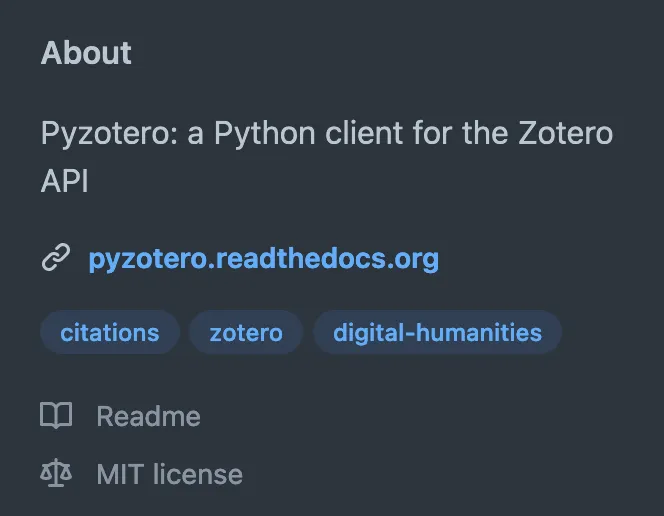What is GitHub?
ByGitHub is a website where open-source code is built and shared. Think of code here in the loosest sense - smallish data sets in text files or spreadsheets, your thesis in a Markdown file, anything that is sort of vaguely text-based can happily live on GitHub.
On a technical level, GitHub is a remote host for git repositories (among a bunch of other features).
This means you can do git-related things like making and rolling back changes to your code in commits,
as well as GitHub-specific things
like making a pull request (PR) to ask for feedback and revisions before merging a branch or fork.
Unless you already know or want to dig into git,
GitHub does a really good job of hiding that complexity from you when you just want to get stuff done.
There’s one key piece of terminology that comes up with GitHub, and can be a bit confusing.
A repository or repo is a bunch of code collected together in some kind of project.
This maps to a directory (or folder) on your computer,
a git repository, and to the web address you see on GitHub.
GitHub repository URLs are always of the format https://github.com/<OWNER>/<REPOSITORY>.
Repositories can be public (anyone can see them),
or private (only specified people can see them).
Why should I care?
There’s lots of ways GitHub can be useful to you, both for sharing your own stuff and for interacting with the wider community of people putting code and things on the internet.
Finding other people’s code (and other things)
Lots of people share code on GitHub. This can be anything from a random script that you use for inspiration to get a thing done, to a full application which you can download and install from GitHub. People might also share other things, like a list of their favourite blogs, the code used to write a paper, or this website.
You can search GitHub for repositories by topic - here’s the search for Digital Humanities - and filter by what languages they use.
Stars are a signal for how popular and well-liked a repository is. Generally you can assume that a repository with more stars is probably more widely known and approved of by the community.
You can do all the searching and reading of code without needing a GitHub account, but to add a star or do any of the other things below, you’ll need an account. For most people this will be free, you’ll know if you need the more advanced features that require a paid account.
A note on licenses
When you’re thinking about using some code from GitHub,
you need to check what license it is using,
to make sure the owner gives you permission to do what you intend with the code.
You can see the license in the sidebar of a repository’s homepage
(in this example screenshot, they use the MIT license),
and in a file called something like LICENSE or license.txt.

If you’re not sure whether the license matches your needs, check it out on Choose a License for a summary of what you’re allowed to do.
All code on GitHub should have an associated license file, but in many smaller projects it may be missing. In this case you technically don’t have permission to use the code for anything, but you might be able to reach out to the maintainer, as suggested here.
Using issues for feedback
Many code projects on GitHub will allow people to open issues against their code. Usually, people use issues for 2 main types of feedback - feature requests (please can you make this code do an extra thing) and bug reports (I think your code might be broken).
If you run into a problem with some code you’re using, or you’re thinking of opening an issue, you should first browse or search the existing issues on that repository to check whether someone else already made a relevant issue. The issues tab only shows you open issues by default, but you can turn that filter off and see all the issues. Here’s the search for all issues mentioning GitHub on the repo for this website.
Sharing my own code, writing or data
You can put your own code (or data or anything else mostly text) on GitHub too!
If your code can’t be made public, you can put it in a private repository, which means only you, and optionally specific other people you add, can see it. This can be useful when you just want to keep a backup of some of your work, or when stuff is in early development and not ready to be shared yet.
If you can make your code public, that’s great! Remember to add an appropriate license, so other people can use it in ways you (or your funding provider!) approve of.
Are there alternatives?
Yep, if you don’t want to use GitHub for your own stuff for whatever reason, there’s quite a few alternatives. The most common are GitLab and Bitbucket (generally used by big companies), but there’s also loads of smaller providers, such as Codeberg and Gitea. The term to search for is “code hosting”.
While most of these have similar features in terms of hosting code, having an issue tracker and the like, there’s usually a lot less community engagement around them, and generally there’s just fewer (public) repositories hosted on these other platforms. It’s quite rare for popular bits of software to be anywhere other than GitHub, and for better or worse, if you want or need any kind of organic discovery of your own repositories or want to build a public profile, GitHub is the place to be.